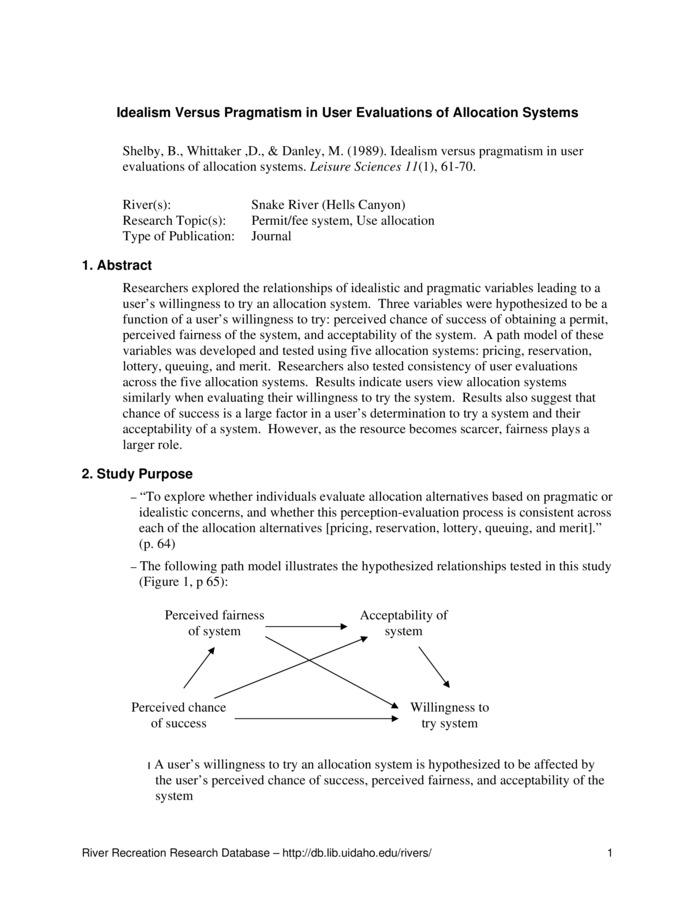PDF
Idealism versus pragmatism in user evaluations of allocation systems Item Info
- Title:
- Idealism versus pragmatism in user evaluations of allocation systems
- Creator:
- Shelby, G.; Whittaker, D.; Danley, M.
- Date Created (ISO Standard):
- 1989
- Years Studied:
- 1978
- Description:
- Researchers explored the relationships of idealistic and pragmatic variables leading to a users willingness to try an allocation system. Three variables were hypothesized to be a function of a users willingness to try: perceived chance of success of obtaining a permit, perceived fairness of the system, and acceptability of the system. A path model of these variables was developed and tested using five allocation systems: pricing, reservation, lottery, queuing, and merit. Researchers also tested consistency of user evaluations across the five allocation systems. Results indicate users view allocation systems similarly when evaluating their willingness to try the system. Results also suggest that chance of success is a large factor in a users determination to try a system and their acceptability of a system. However, as the resource becomes scarcer, fairness plays a larger role.
- Research Topic:
- Permit/fee system, Use allocation
- Publication Type:
- Journal Article
- Location:
- Idaho Oregon
- Rivers:
- Snake River (Hells Canyon)
- Source:
- Leisure Sciences; ISSN 0149-0400; Vol 11; Issue 1; 61-70 pp.; 1989.
- Source Identifier:
- shelby_etal_1989.pdf
- Type:
- Text
- Format:
- application/pdf
Source
- Preferred Citation:
- "Idealism versus pragmatism in user evaluations of allocation systems", River Recreation Research Database, University of Idaho Library Digital Collections, https://www.lib.uidaho.edu/digital/rrrd/items/rrrd016.html
Rights
- Rights:
- In copyright, educational use permitted. Educational use includes non-commercial reproduction of text and images in materials for teaching and research purposes. The University of Idaho Library is not liable for any violations of the law by users.
- Standardized Rights:
- http://rightsstatements.org/vocab/InC-EDU/1.0/

